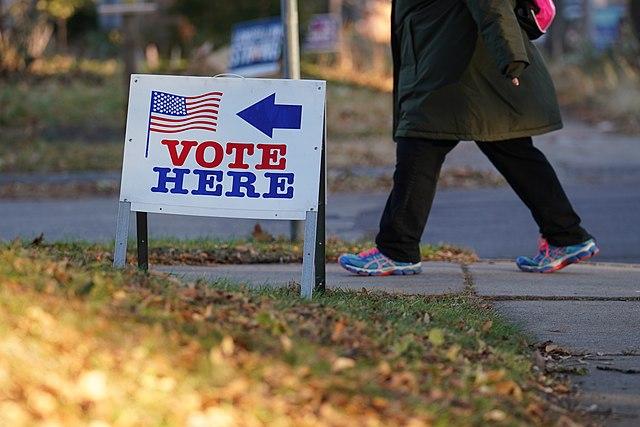On Tuesday Nov. 7th, multiple states held local and state wide elections, with a large range of voter issues at play. The most notable state elections were in Virginia, Ohio, Kentucky, and Pennsylvania. All of the states had surprising turnout and wins for Democrats, which many attributed to a reactionary response to abortion bans in recent years and months.
In Virginia, Democrats took control of the House of Delegates and Senate, after Republicans won the governor’s seat in 2021. Kentucky, a state that voted for Trump by more than 25 percentage points in 2020, re-elected their Democrat governor, Andy Beshear. Ohio, another state that voted for Trump in 2020, voted “yes” on Issue One which would add abortion as a right in the state constitution. Pennsylvania, one of a few states that allow the Supreme Court judges to be elected, voted in a liberal judge.
Maneesh Arora, Assistant Professor in Wellesley’s Political Science Department, interpreted the voter turnout and election outcomes. “Democrats definitely did a little bit better than we might have expected … The party that has the presidency often performs a little bit worse in the midterms and off cycle elections; however, Democrats have kind of out performed that in 2022 and 2023 … [This] speaks to some of these things, like the effect of [the abortion ban] on getting Democrats out to vote, but then also some of the key constituencies. For example, women who live in suburbs [getting] out to vote, and voting Democrat in a way that they may not have had it not been for the Supreme Court Ruling.”
Arora added that “One of the patterns that we seem to be seeing is that protecting abortion rights is undefeated since the Supreme Court ruled on Roe v. Wade. And it’s hard to put a causal effect on that, but it seems to be benefitting Democrats.”
Additionally, Texas voted in favor of 13 out of the 14 proposed amendments to the state’s constitution. The only proposition that was not passed was the thirteenth: “The constitutional amendment to increase the mandatory age of retirement for state justices and judges.” The opposition to increasing the retirement age for members of the state’s judicial branch coincides with a country-wide call for term limits and maximum age requirements for elected officials and judges/justices.
In September, the Pew Research Center conducted a study on how Americans view certain proposals to change the United States political system. The study focuses on proposals to limit the number of terms that members of Congress can serve. The study also looks at proposals to enforce a maximum age limit in place for elected officials in Washington, D.C., and proposals enforcing a maximum age limit in place for Supreme Court justices, among others. In all three cases, the study found that the majority of the United States adults surveyed, across political parties and ages, were in favor of these proposals.
Two Wellesley students, Addey Lilley ’27, and Janaki Kapadia ’27, both feel strongly about term and age limits in the legislative, executive, and judicial systems. “I think the Supreme Court should have term limits,” Lilley said.
Kapadia went into detail: “I’m a really big supporter of term limits for judges … at this point, people aren’t retiring, and that’s really compromising the validity of the court because it means that one president can put three justices on during one term and another president may not be able to put any on no matter how long they serve.”
Kapadia continued to explain, “I think there should be an age limit … because it’s just being pushed more and more and it’s impacting the ability for new voices to be heard in politics, especially of young people who are going to have to experience the effects of these policies for the next 20, 30, 40 years. Politics impact so many people, [but] young people are going to be impacted the longest; their needs need to be prioritized, and that’s not happening right now.”
For many Wellesley students the recent elections gave them a chance to cast their vote for the first time. Two Wellesley first-year students, Ariana Inamdar ’26 and Brielle Collins ’26, both from Virginia voted in their first election. Both of them were able to participate in the election through mail-in ballots. They also said that being from the same state, they helped each other get absentee ballots.
“I texted Brielle the request for the ballot on October 16th, the last day to request a ballot,” Inamder said.
Both Inamder and Collins expressed their concern for abortion rights in the election and the possibility of complete Republican control in the state government.
Inamder stated, “I knew a big issue was abortion rights because I knew that we were the only one in the South without restrictions on abortion … we knew that Youngkin [the Republican Virginia Governor] was gonna try to do that.”
Collins also expressed her personal interest in elections. She said, “I feel very strongly about abortion rights, so it was just keeping [those rights that] was important to me … I did know that we were in danger of having a Republican trifecta with the House and Senate and controlling the General Assembly of Virginia.”
Both Inamder and Collins were not expecting the outcomes of the elections. Inamder said, “I honestly wasn’t [expecting the outcomes]. I didn’t expect it to be that strongly [in favor of] Democrats.” Brielle stated, “I was surprised in a good way.”




